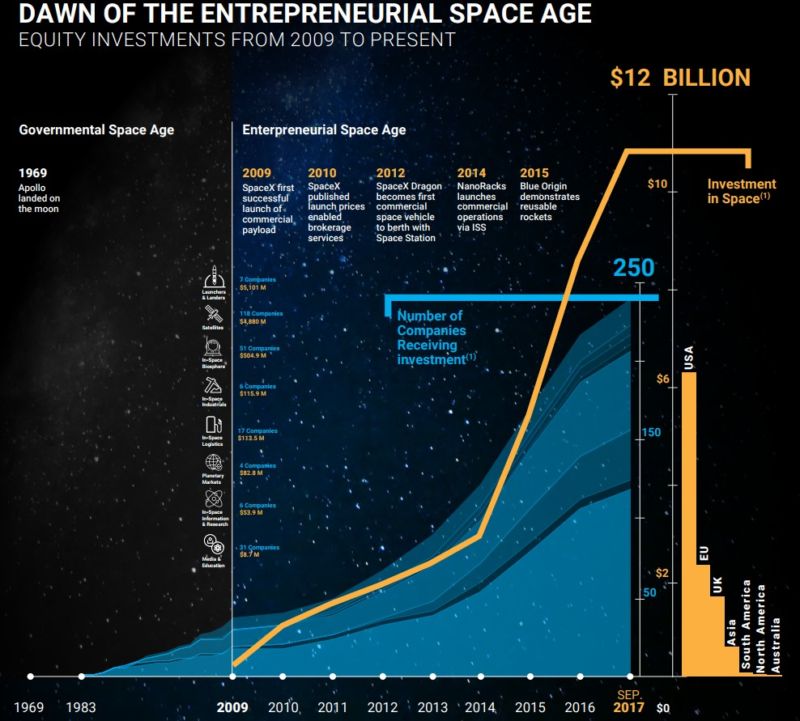
In July 2009, SpaceX launched its first commercial payload—a 50kg Earth observation satellite for Malaysia—which flew into space aboard a privately developed rocket. According to a new space investment report that will be published Tuesday by the Space Angels, an angel fund and a venture capital fund focused on space, which marked a key inflection point between the "governmental" space age and the "entrepreneurial" space age.
"With that launch, SpaceX significantly lowered the barriers to entry in the space industry," the fund's chief executive, Chad Anderson, writes in the new report. "By vertically integrating, the company was able to drastically reduce the cost to get to orbit. But what deserves at least as much credit is their decision to publish their pricing, which fundamentally changed the way we do business in space. This transparency enabled would-be space entrepreneurs to develop a business plan and raise equity financing based on those cost assumptions."
The Space Angels organization prepares quarterly investment reports but, until this week, has not published them for public consumption. The report breaks down equity investment in the space sector by year, since 2009, in angel, venture capital, corporate and other forms of non-governmental investment.
From 2009 through September 2017, the report finds that $12 billion in equity investments have been made in space, with annual amounts increasing significantly in 2015 and beyond to more than $2 billion per year. At $10 billion, launch services, landers, and satellites have accounted for the bulk of this investment since 2009.
Aside from the SpaceX launch that year, other data supports the year 2009 as the beginning of an entrepreneurial space age in which the private sector began making investments to return profits from space-based activities. About 250 space ventures have received non-government equity funding, the report states, and, of those, 88 percent have been funded since 2009.
reader comments
94